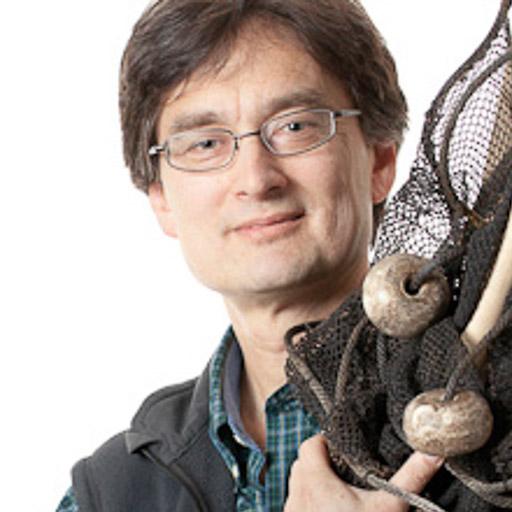
Dr. James W.A. Grant, PhD
Pronouns: He/Him
Not a thesis supervisor
- Professor, Biology
Are you the profile owner?
Sign in to editResearch areas: The behaviour, ecology and conservation biology of stream-dwelling salmonids.
Contact information
Biography
Education
PhD (Guelph)
Research interests
The behaviour and ecology of competitive aggression Animals differ tremendously, both within and among species, in the amount of aggression used when competing for resources. The primary goal of our research is to determine how the distribution of resources in space and time influences the aggressiveness of animals. In laboratory and field experiments, we manipulate presentation of food or mates, while monitoring the aggressive behaviour of small groups of fish or birds. Our long-term goal is to develop general principles of competitive aggression that will help explain the diversity of foraging, mating and social systems observed in the wild.
We use stream-dwelling salmonids as a model system to investigate how territorial behaviour affects population regulation. Much of our work to date has involved following marked individuals in the wild as they feed, defend territories, and move through the environment. We relate the diversity in behaviour observed to measures of fitness, such as growth and mortality rate. Current work involves manipulations of food abundance to determine the quantitative relationships among habitat productivity, terrotory size and population density.
Teaching activities
Biodiversity and Ecology
Selected publications
Roy, M.L., A.G. Roy, J.W.A. Grant, and N.E. Bergeron. 2013. Individual variability in the movement behaviour of juvenile Atlantic salmon. Canadian Journal of Fisheries and Aquatic Sciences 70: 339-347.
Toobaie, A. and J.W.A. Grant. 2013. Effect of food abundance on aggressiveness and territory size of juvenile rainbow trout, Oncorhynchus mykiss. Animal Behaviour 85: 241-246.
Wood, J.L.A., J.W.A. Grant, and M.H. Belanger. 2012. Population density and territory size in juvenile rainbow trout, Oncorhynchus mykiss: implications for population regulation. Canadian Journal of Fisheries and Aquatic Sciences 69: 1121-1128.
Noonan, M.J., J.W.A. Grant, and C.D. Jackson. 2012. A quantitative assessment of fish passage efficiency. Fish and Fisheries 13: 450-464.
Kim, J.-W., J.W.A. Grant, and G.E. Brown. 2011. Do juvenile Atlantic salmon (Salmo salar) use chemosensory cues to detect and avoid risky habitats in the wild? Canadian Journal of Fisheries and Aquatic Science 68: 655-662.
Weir, L.K., J.W.A. Grant, and J.A. Hutchings. 2011. The influence of operational sex ratio on the intensity of competition for mates. The American Naturalist 177: 167-176.
Steingrímsson, S.Ó. and J.W.A. Grant. 2011. Determinants of multiple central-place territory use in wild young-of-the-year Atlantic salmon (Salmo salar). Behavioral Ecology and Sociobiology 65: 275-286.
Clark, L. and J.W.A. Grant. 2010. Intrasexual competition and courtship in female and male Japanese medaka (Oryzias latipes): effects of operational sex ratio and density. Animal Behaviour 80: 707-712.
Weir, L.K. and J.W.A. Grant. 2010. Courtship rates signal fertility in an externally fertilizing fish. Biology Letters 6: 727-731.
Whiteway, S.L., P.M. Biron, A. Zimmerman, O. Venter, and J.W.A. Grant. 2010. Do instream restoration structures enhance salmonids abundance? A meta-analysis. Canadian Journal of Fisheries and Aquatic Science 67: 831-841.

